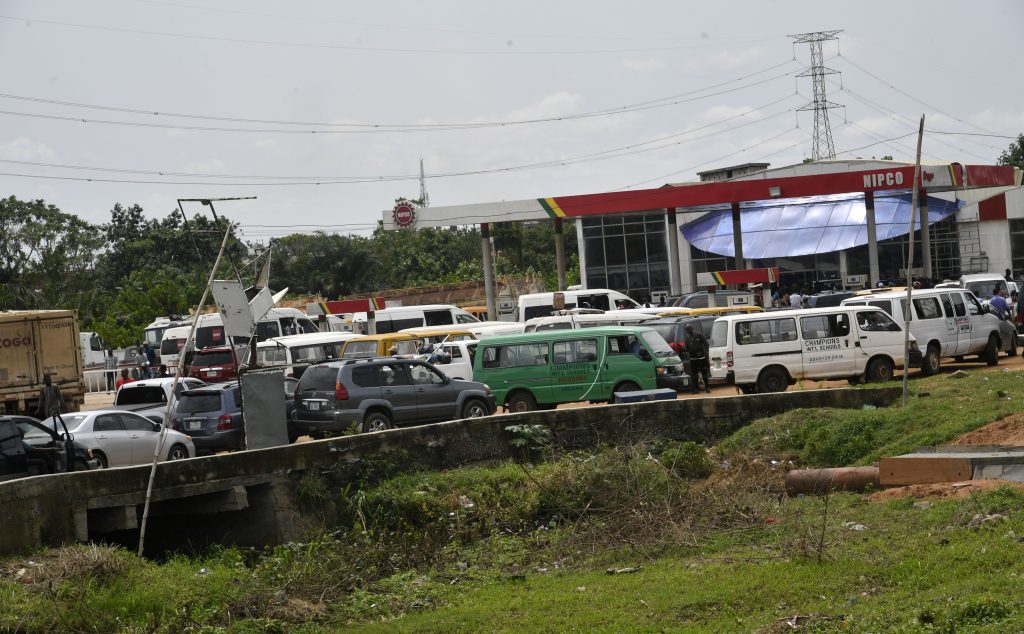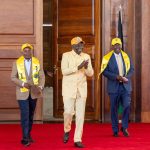
Long queues were seen on Tuesday outside petrol stations in Nigeria, a day after newly inaugurated President Bola Tinubu announced the end of fuel subsidies in his first speech.
Oil-rich Nigeria swaps crude worth billions of dollars for gasoline that it then subsidises for its domestic market, causing a huge drain on revenue, foreign exchange and contributing to ballooning debt.
On Monday, 71-year-old Tinubu triggered a wave of panic when he declared that the “fuel subsidy is gone” after taking the helm of Africa’s most populous nation.
The previous government of Muhammadu Buhari budgeted the subsidies until the end of June, but it was unclear if that was when nationwide prices at the pump would rise, or if it would happen before.
“The reality is that from today the government can no longer afford to pay for fuel subsidies,” the CEO of the Nigerian National Petroleum Corporation (NNPC) Mele Kyari told reporters on Tuesday.
He said the government needed to “settle up to 2.8 trillion naira (about $6 bn)… on subsidies.”
But he said that “some engagements are ongoing to bring relief to the people.”
Some petrol stations had already started increasing the price of petrol on Tuesday, and so far the new government has not announced palliative measures for customers.
“I think we are going (to be) in for a terrible situation, worse than before. It is more suffering for Nigerians,” said Emeka Emef, a 43-year-old civil servant queuing outside a petrol station in the megacity of Lagos.
While fuel subsidies largely benefit the middle class and those who own a vehicle, it does help keep the cost of transport low and is generally a popular measure in the country.
Previous efforts by political leaders to remove it have been met with anger, including in 2012 when the army clashed with protesters demonstrating over fuel costs.
Tinubu — who said during his campaign that he would remove the costly subsidies — said his government intends to “re-channel the funds into better investment in public infrastructure, education, health care and jobs”.
More than 80 million of the country’s estimated 210 million people live below the poverty line, according to the World Bank, and the United Nations has warned that over a quarter of those are facing acute hunger this year.
str-aml-cma/lhd/rox
© Agence France-Presse






